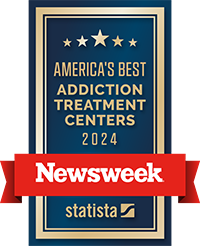Key Takeaway:
- Alcohol Use Disorder (AUD) is a progressive disease that develops through distinct stages. It often starts with experimental or social drinking, transitions into problematic or dependent drinking, and can ultimately lead to late-stage alcoholism characterized by significant physical, mental, and social harm. Early intervention can help prevent the escalation to more severe stages and aid recovery.
- The risk of developing AUD is influenced by a range of factors including genetic predisposition, age of first use, social environment, concurrent mental health disorders, stress, history of trauma, peer pressure, alcohol availability, and regular binge drinking. These factors do not determine that a person will develop AUD, but they increase the risk.
- Recovery from AUD is always possible, regardless of the stage of the disorder. The process often involves a combination of detoxification, medical treatment, therapy, counseling, support groups, and long-term management strategies. Understanding that AUD is a disease rather than a moral failing is crucial in reducing stigma, promoting treatment, and supporting recovery.
Alcohol Use Disorder (AUD) is a chronic condition affecting individuals worldwide. Its progression is often insidious, with symptoms escalating through distinct stages of alcoholism that can sometimes be overlooked until the disorder becomes severe. This alcoholism progression begins with the early signs of a growing dependence on alcohol, where individuals might consume more alcohol to achieve the same effect due to increasing tolerance.
Despite the severity and complexity of AUD, recovery is always possible. Early intervention is key, and numerous treatment options are available, ranging from medical treatments to therapy, counseling, and support groups. The important thing to remember is that AUD is a disease, not a moral failing. Dispelling stigma, promoting understanding, and motivating affected individuals to seek help are essential steps towards recovery.
The Stages Of Alcoholism
Recognizing each stage of alcohol dependence is vital for spotting symptoms early on and taking action to avoid or cure the condition. There are five stages of alcohol dependence that one may go through until complete reliance on alcohol.
The stages include:
- Pre-Alcoholic Stage: Drinking for fun or social events, yet no tolerance developed.
- Early Stage: Drinking alone, blackouts, and higher tolerance for alcohol.
- Middle Stage: Heavier reliance on alcohol and physical withdrawal when quitting.
- End-Stage: Complete dependence on alcohol and life-threatening issues.
Stages are not always linear, and not everyone will experience all these stages or in this exact order. Recognizing each stage of alcohol dependence is vital for spotting symptoms early on and taking action to avoid or cure the condition. If you or a loved one are moving through the progression of alcoholism, it may be time to seek professional help. Reach out to The Ridge Ohio today to learn how our addiction treatment programs can help you.
Pre-Alcoholic Stages of Alcoholism
Individuals may experience changes in physical and psychological behavior when in the pre-alcoholic stage of alcohol dependence. In the pre-alcoholic stage, people may participate in social drinking and have a mild disorder, but the the first phase in the stages of an alcoholic is not severe enough to introduce the disease concept of addiction. Mentally, they could attempt to rationalize moderate drinking, utilize alcohol to cope with stress, and try to limit or control the amount of alcoholic beverages consumed.
Consequences have not progressed to that of a consistent moderate drinker in this stage and physical effects and consequences of frequent abuse like stomach bloating are not present.
Increased tolerance and craving for alcohol
Increased tolerance and craving for alcohol are two signs of the early stages of alcohol abuse. It’s important to seek help at this early stage to stop the disorder from getting worse.
At this stage, an individual needs more alcohol to feel the same effects. Plus, changes in the brain make drinking more enjoyable. This means people may drink more often, trying to get the same pleasure with less alcohol.
Early-Stage Alcoholism
Also called the ‘prodromal’ stage, this phase is characterized by a sharp increase in binge drinking, blackouts, and secretive behavior. Individuals will find themselves using alcohol alone and as a way to cope with daily difficulties, sometimes even starting to drink in the morning.
Withdrawal symptoms upon reducing alcohol use
Withdrawal symptoms are common for those with early-stage alcoholism who reduce their alcohol intake. These can range from headaches, nausea, vomiting, tremors, anxiety, and seizures.
To manage these, one can:
- Slowly cut down on drinking instead of suddenly stopping
- Seek medical help
- Join a support group
- Try stress-reducing activities like yoga or meditation
It is essential to remember that early-stage alcoholism is a progressive condition and if you abuse alcohol there is a strong chance it gets worse. Seeking help as soon as possible increases the chances of recovery. Emotional support from family and friends or support groups can help individuals stick to their recovery plan.
Social and behavioral changes
As alcohol dependency advances, it can bring tremendous social and behavioral shifts in an individual’s life. Early-stage alcoholism can be marked by an obsession with consuming alcohol more regularly, taking part in risky behaviors, decreased productivity at work, relationship issues, and run-ins with the law. It’s essential to spot these early warnings and get help before the physical dependence increases and moderate drinking turns into negative feelings and a severe alcohol use disorder.
Middle Alcoholic Phase
The middle phase of alcohol use disorder is marked by: loss of control over drinking and increased alcohol consumption. Individuals start to develop problem drinking habits and may start prioritizing drinking over daily needs, neglecting personal, professional, or social responsibilities. Tolerance continues to increase, along with blackouts, memory loss, and the tendency to hide drinking habits from loved ones to avoid judgment.
Physical consequences of alcohol use
During severe alcohol use disorder’s middle phase, physical consequences may become more intense. Some health concerns from long-term alcohol abuse include:
- Liver damage: Excessive alcohol can cause liver disease or cirrhosis, a serious, potentially incurable condition that affects liver function.
- Brain damage: Prolonged alcohol use can cause neurological damage, like memory loss, cognitive deficits, difficulty learning new things, and even psychosis.
- Heart disease: Alcohol abuse can lead to high blood pressure, heart failure, and other forms of heart disease.
- Cancer risk: Chronic, excessive alcohol use is a risk factor for several cancers, like breast, liver, and colorectal.
Denial and rationalization of drinking behavior
Individuals in the middle stage of alcohol use disorder may face relationship issues, financial struggles, and health concerns. They may make excuses or blame others. This pattern of denying and justifying can make it hard to see the need for recovery and get help.
Loved ones should provide support and encourage reaching out to professional help. Seeking guidance and resources from a healthcare professional is essential for those moving through the phases of alcoholism. The Ridge Ohio offers programs that are specially designed to treat alcohol dependence and promote long-term sobriety. Reach out to us today to learn more about our holistic programs.
End-Stage Alcoholism
End-stage alcoholism is the phase in which alcohol use can be considered severe. It is characterized by significant physical and psychological negative consequences. Drinking in this stage feels like a necessary part of daily life and often individuals feel that they have no control over their behavior
Chronic health issues and damage to organs
End-stage alcoholism, or late stage alcoholism, can lead to significant organ damage, affecting a wide range of bodily systems. The liver is the primary organ responsible for metabolizing alcohol, and chronic heavy drinking can lead to conditions such as fatty liver, alcoholic hepatitis, fibrosis, and ultimately cirrhosis, a severe and potentially fatal condition marked by extensive scarring and functional impairment of the liver. The later stages of alcoholism can be incredibly dangerous.
Alcohol has a toxic effect on the pancreas, potentially resulting in pancreatitis, an inflammation of the pancreas that can lead to digestive problems and diabetes. Long-term alcohol abuse can also cause cardiomyopathy, a condition in which the heart muscle weakens and the heart is less able to pump blood effectively, leading to heart failure. Additionally, the brain is susceptible to damage from AUD, with symptoms ranging from memory issues to severe conditions like Wernicke-Korsakoff syndrome. This organ damage occurs due to the toxic effects of alcohol and its byproducts, the body’s inflammatory response to these substances, and nutritional deficiencies resulting from chronic heavy drinking.
Severe withdrawal symptoms
Severe alcohol withdrawal symptoms typically occur in individuals who have been drinking heavily for weeks, months, or years and then suddenly stop or significantly reduce their alcohol consumption. The onset of severe withdrawal symptoms, often referred to as alcohol withdrawal syndrome, usually starts within 6-24 hours after the last drink, but can sometimes occur up to several days later.
One severe withdrawal symptom is Delirium Tremens (DTs), which usually begins 48 to 72 hours after the last drink. DTs can cause severe confusion, disorientation, hallucinations, extreme agitation, fever, high blood pressure, and rapid and irregular heartbeat.
Alcohol withdrawal seizures can also occur, usually within the first 24 to 48 hours after the last drink, but they can happen up to a week later. These seizures may be generalized and severe, potentially leading to injury or death.
A severe form of alcohol withdrawal includes autonomic instability—this can manifest as rapid heart rate, high blood pressure, excessive sweating, and fever. Other severe symptoms include severe nausea and vomiting, which can lead to dehydration and electrolyte imbalances, and severe tremors, which can affect the whole body.
These severe withdrawal symptoms constitute a medical emergency and require immediate addiction treatment, as they can be life-threatening. It’s also important to remember that not all individuals who stop drinking experience severe withdrawal symptoms, and the severity of withdrawal can vary greatly depending on a variety of factors, including the individual’s overall health, the duration and intensity of their alcohol use, and their genetic predisposition to withdrawal symptoms.
Prioritize Finding Alcohol Rehab Treatment Before It’s to Late
Each stage of alcoholism carries its unique set of challenges and harms, underlining the importance of early detection and intervention. Overcoming AUD often requires a comprehensive approach, involving medical treatment, psychotherapy, support groups, and lifestyle changes.
It’s crucial to remember that alcoholism is a disease, not a moral failing or weakness of character. Like any other disease, it requires professional care and understanding. The journey to recovery can be difficult, but with appropriate support and treatment, individuals can regain control of their lives and achieve long-term sobriety.
The stages of alcohol addiction serve as a reminder of the progressive nature of this disease and the importance of addressing it at the earliest signs and receiving proper treatment. If you or someone you know may be struggling with alcoholism, reach out to our compassionate intake specialists to learn more about how our programs can help you reclaim control over your life.
Five Facts About The Stages of Alcohol Dependence:
- ✅ There are five stages of alcoholism, ranging from pre-alcoholic to end-stage.
- ✅ In the early stage, drinking may seem like a way to relieve stress or have fun, but it can quickly progress to the next stage.
- ✅ As alcohol dependence progresses, symptoms such as cravings, tolerance, and withdrawal become more severe.
- ✅ The final stage of alcohol dependence, end-stage alcoholism, can lead to serious health problems such as liver disease, pancreatitis, and cancer.
- ✅ Alcoholism is a treatable disease and recovery is possible with professional help and support.
FAQs about The Stages Of Alcohol Dependence
What are The Stages of Alcohol Dependence?
The stages of alcohol dependence refer to the gradual progression from occasional alcohol use to severe addiction, characterized by physical and psychological symptoms.
What are the Early Signs of Alcohol Dependence?
Early signs of alcohol dependence may include drinking alone, neglecting responsibilities, tolerance and withdrawal symptoms, and withdrawal from social activities.
What are the Physical Symptoms of Alcohol Dependence?
Physical symptoms of alcohol dependence may include tremors, sweating, increased heart rate, hypertension, and liver disease.
What are the Psychological Symptoms of Alcohol Dependence?
Psychological symptoms of alcohol dependence may include depression, anxiety, irritability, and mood swings.
What are the Risk Factors for Developing Alcohol Dependence?
Risk factors for developing alcohol dependence may include a family history of addiction, mental health disorders, childhood trauma, and social and environmental factors.
How is Alcohol Dependence Treated?
Alcohol dependence can be treated with a combination of medication, therapy, and support groups, such as Alcoholics Anonymous. It is important to seek professional help for alcohol dependence to avoid serious health and social consequences.




